Editor’s Note: Without question, these are strange days … for some of us, the adjustments to our “normal” are barely a blip.
For others, our whole lives seem to be upside-down. But as every parent knows, learning never stops.
Today, we’re taking a look back at one of our most popular posts from our good friend, Ms. Sam,
who shares ideas for making summer schooling so much fun that our kids won’t even realize Mom just snuck in some teaching.
When school is finally over for the year, those first few weeks of freedom are pure bliss. But then a homeschool mom’s mind often worries, “Shouldn’t I be keeping their little minds active over the summer?” This proposition invokes inward groans at just the thought of making lesson plans, or cracking the books back open.
But what if you could just sneak some schooling in during the summer? And what if it was fun, not just for the kids, but for you, too? No, my teaching-weary mama, I have not lost my grip on reality. Just hear me out.
The whole idea of this is not to drain all the relaxation from your vacation. This is meant to be fun. So, if something turns out to be a drag for you and the kids, try something else. When you find what clicks, you will be giving your kids something to look forward to and keeping them busy in idle hours.
All through the year, I used to read aloud to my boys, even when they were teenagers. It was a ritual we all enjoyed. We used a lot of historical fiction in our schooling, and it was a simple thing to continue it into the summer. Reading intentionally was a great way to keep up with our literature and history, as well as bolster our vocabulary. And summer is the perfect time to take those books and connect all the dots that you might not have time for during the school year. I had lots of go-to books for great activities, but nowadays there is Pinterest, and so many other sites to inspire you in your chosen theme.
Do you read out loud to your kids? It has been proven as one of the most effective (and enriching) tools to help kids learn on so many levels. There is a plethora of amazing literature out there that makes the places and people of the past come alive. What about picking a great historical book that everyone in your family would enjoy, and reading it through the summer?
It’s so easy to incorporate other areas of education with literature. Say you are reading a book set in Ancient Egypt. Find a craft book that has ideas of things you can make and do that will cement the period in their mind. Copy out a page of the hieroglyphic alphabet and have the kids write their names to hang on their doors. Make pyramids out of sugar cubes. My boys made canopic jars out of yogurt containers to hold fake organs.
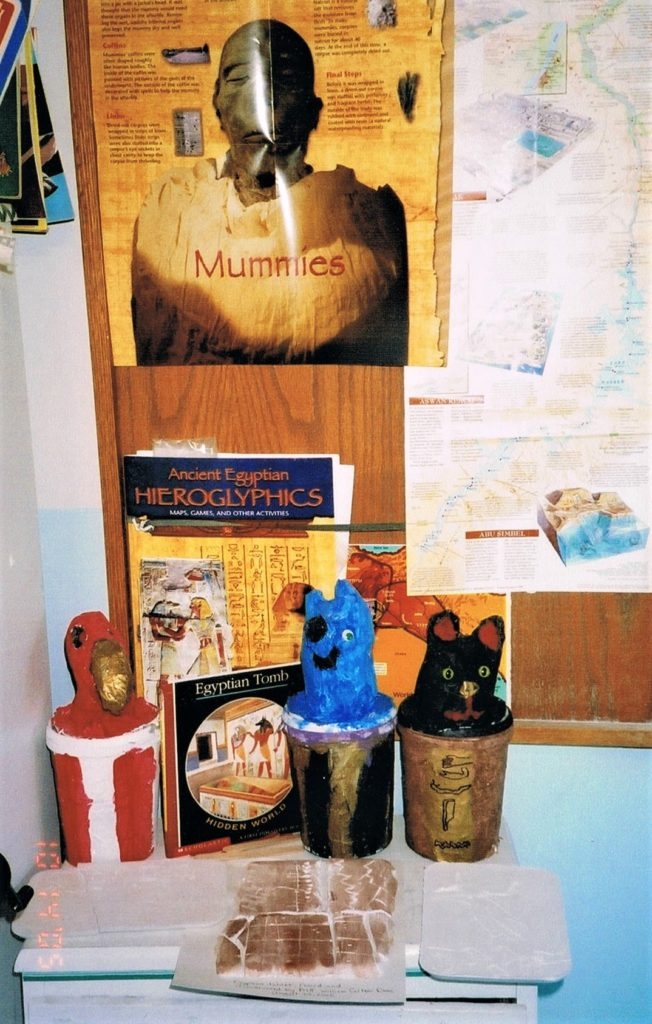
Plan a simple meal with geographically correct foods: dates, figs, almonds, flatbreads. Make a paper breastplates and line their eyes with kohl (a.k.a. black eyeliner) and give them towel sarongs so that they can come to their Egyptian feast in costume.
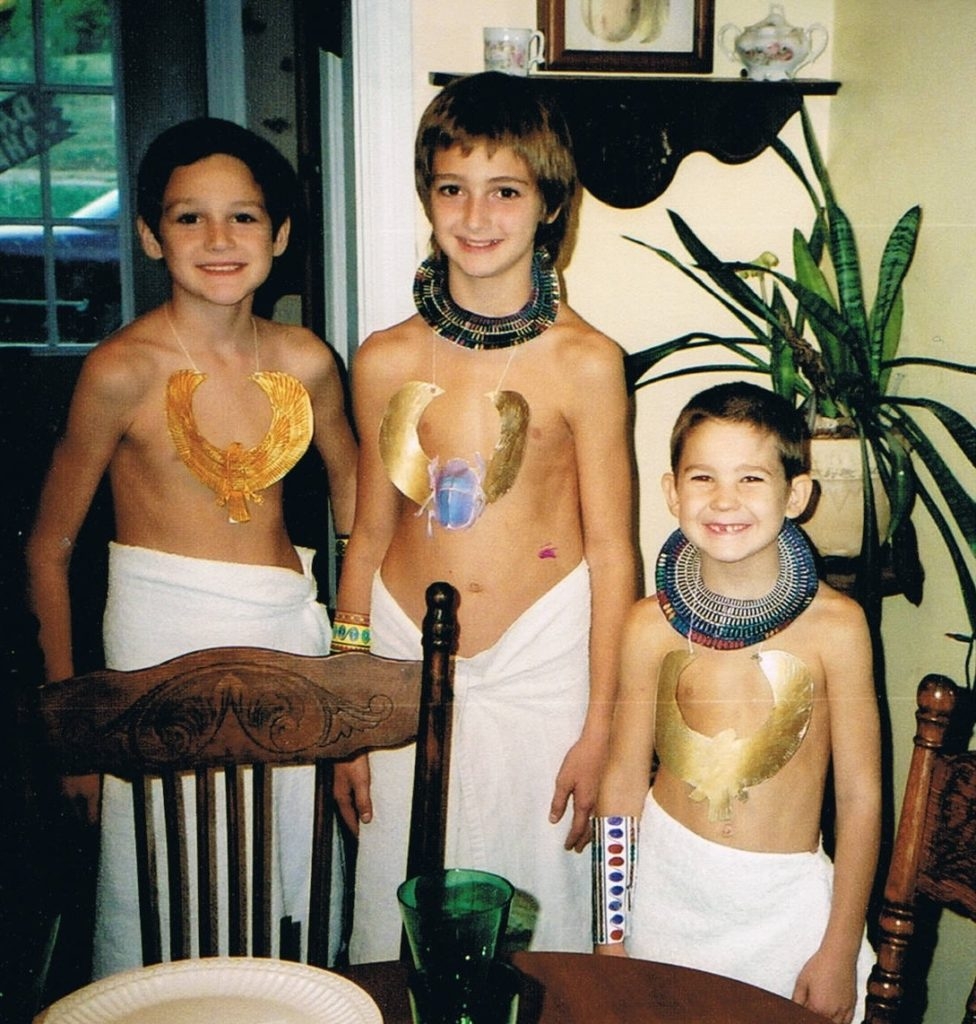
One of my boys’ favorite Egyptian activities was to make a mummy. We went to the Dollar Tree and found a Barbie-like doll that was made of soft, hollow plastic. We made an incision in the belly, stuffed it with herbs, and wrapped it in plaster-coated gauze that sets up like a cast. Then we made a cardboard sarcophagus and decorated it. To this day they can talk about ancient Egypt all day long.
Perhaps your kids are interested in early American history. There are museums of all types that would make amazing field trip sites. There are Revolutionary War events, Civil War reenactments, Mountain Man days.
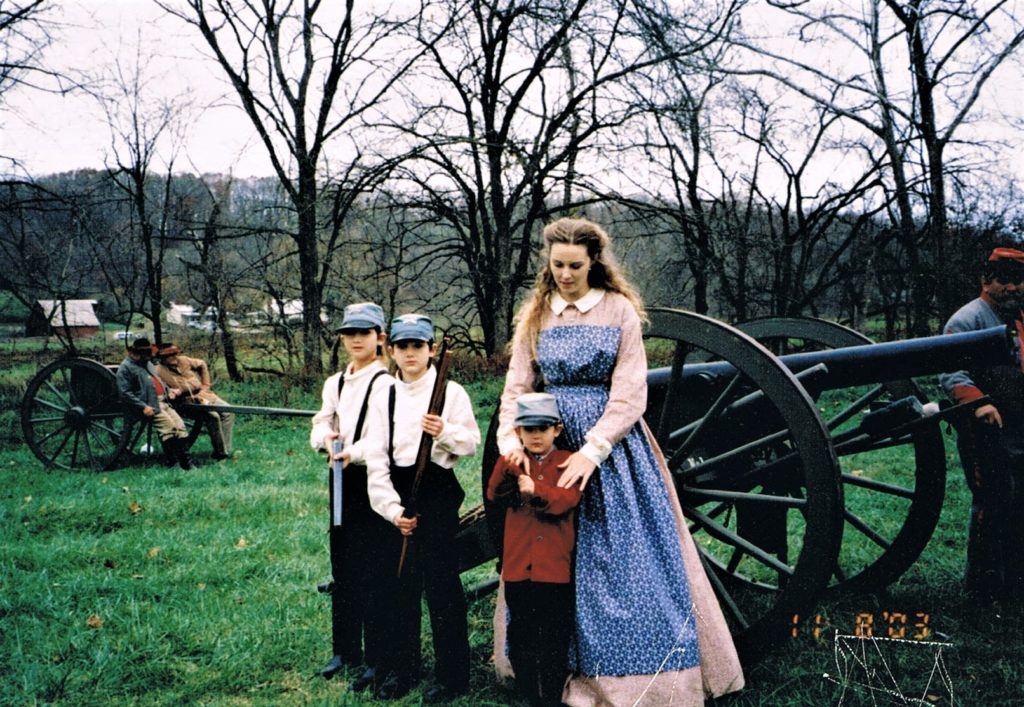
You will find tons of great ideas to go with any time period. Include these with your reading and crafting, and you will be making memories your kids won’t forget. And while they won’t forget what they learned, what’s just as amazing: they may never even realize they were being taught in the first place!
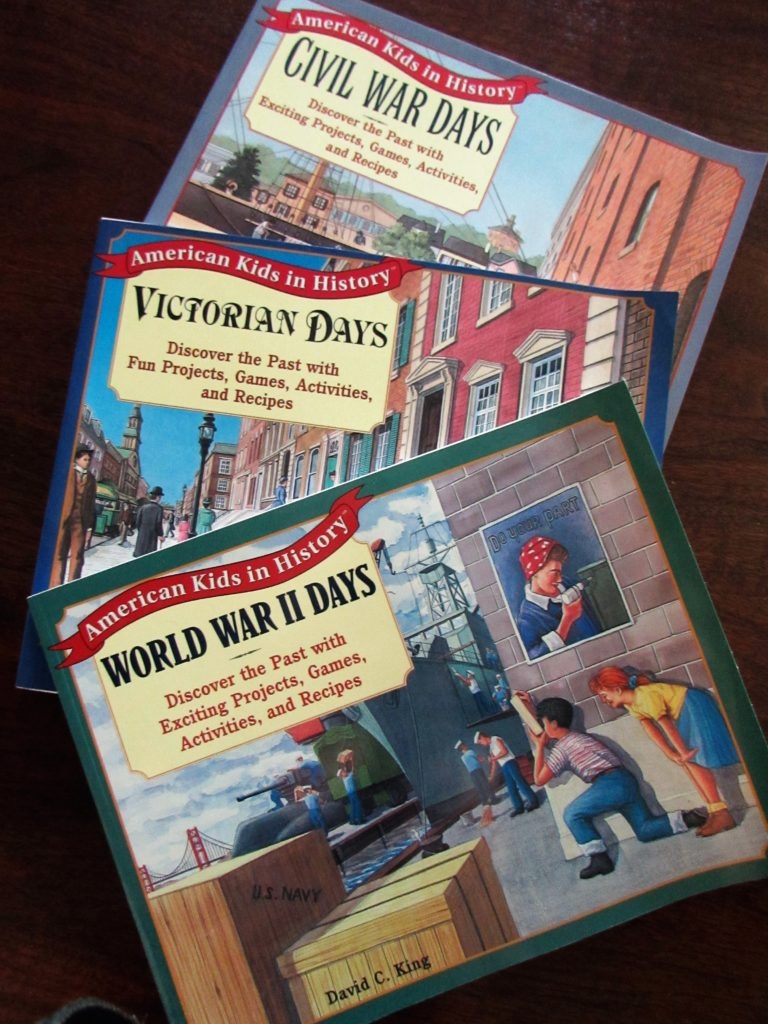
We also continued on with science. I can hear the groans. For some reason this seems to be one of the subjects parents least like to teach. Don’t even think about opening a school book. Summer is the perfect time to simply immerse yourselves in nature. While out on a walk, if you see a beautiful butterfly, go home and look it up. Learn where it migrates, what it eats. Maybe you could plant some of its host plant in your yard to encourage it to visit you, with some friends.
Learn about famous scientists and find some fun experiments you can do with things you already have at home. You don’t know which ones to try? A Reason For has biblically-based summer science kits that have everything you need for a week of your very own science camp.
Summer is the perfect time to lie on a quilt in the yard and look at the glittering display overhead. Stargaze at night and learn the names of the constellations and where to find them. Simple binoculars are often as powerful as cheaper telescopes, and will draw in the craters and mountains of the moon’s surface. To coordinate with your stargazing, you could read a book of the Greek and Roman myths that originally inspired the constellations’ names. Continue your Ancient Roman theme by making mosaics and learning some Latin phrases.
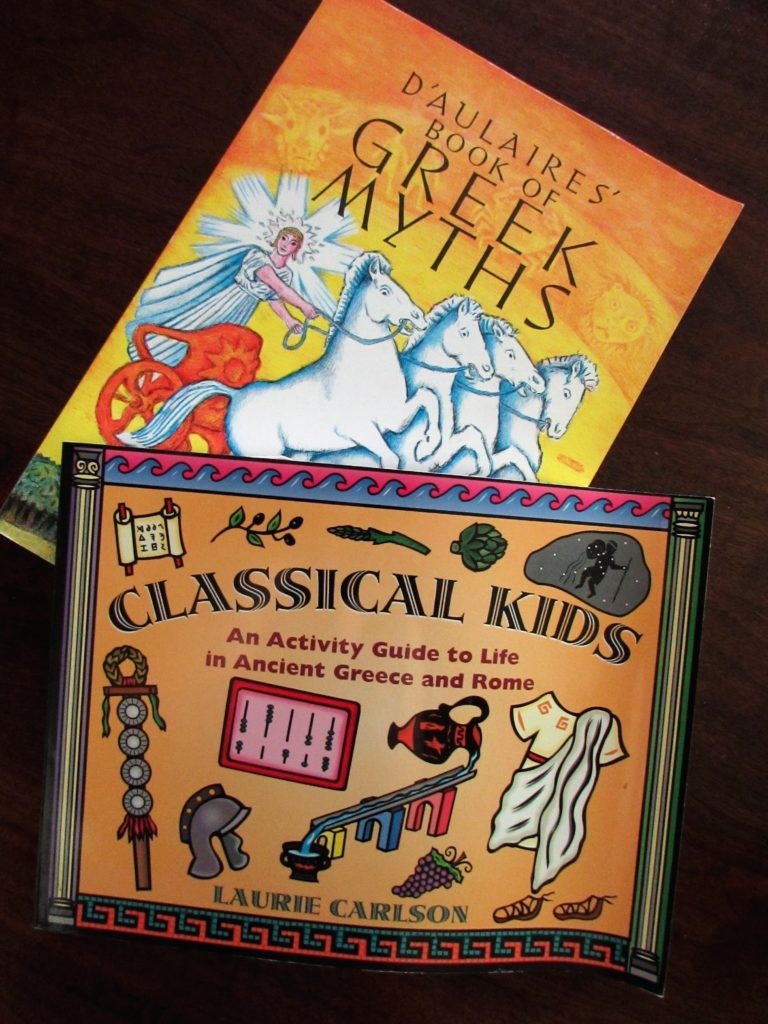
Or pursue the more scientific side. Visit a planetarium and see how the universe is so magnificently arrayed. Have the kids make their own models of the solar system to hang in their room so they can remember the names of the planets. My kids loved making up their own constellations. Let them draw it out; name it; write their own myth of how it was created. Host a stargazing party and have the kids decorate sugar cookies with stars and moons or constellations made of sugar beads, and show off all the things they made.
Every possible subject can be connected to your beliefs. Read the Bible passages about Joseph being sold into slavery, or Pharaoh and the plagues when studying Egypt. There are some amazing books about people in American history (George Washington is a personal favorite) and how their faith in God shaped our country.
When gazing at the stars, read: “Lift up your eyes and look to the heavens: Who created all these? He who brings out the starry host one by one and calls forth each of them by name. Because of his great power and mighty strength, not one of them is missing.” (Isaiah 40:26) Or look up Psalm 147:4: “He counts the number of the stars; He gives names to all of them.” I also love Job 38:31-33 for those who have learned the names of the constellations.
When learning about the natural world around them, have them read Job 12:7-10: “But ask the animals, and they will teach you, or the birds in the sky, and they will tell you; or speak to the earth, and it will teach you, or let the fish in the sea inform you. Which of all these does not know that the hand of the LORD has done this? In his hand is the life of every creature and the breath of all mankind.”
When you really begin to think about it, there are educational branches that spread off of every subject like a web. There is no right or wrong way to teach. Simply sitting with a child and explaining why a sunset glows with many colors still counts as teaching, and such a pleasurable way to be taught.
Make a subject last a week. Or ten days. Switch to something else. Or maybe you will find something so enthralling that you make a whole summer of it. No tests, no school books, no grading. If done in the spirit of fun, your kids will find it no work at all, and neither will you. And you’ll love hearing your children talk about their summer in Egypt, or their week in the stars, for a long, long time.
To read more from Ms. Sam, visit her posts in our archives.
 Please visit AReasonFor.com to learn more about their excellent resources!
Please visit AReasonFor.com to learn more about their excellent resources!
